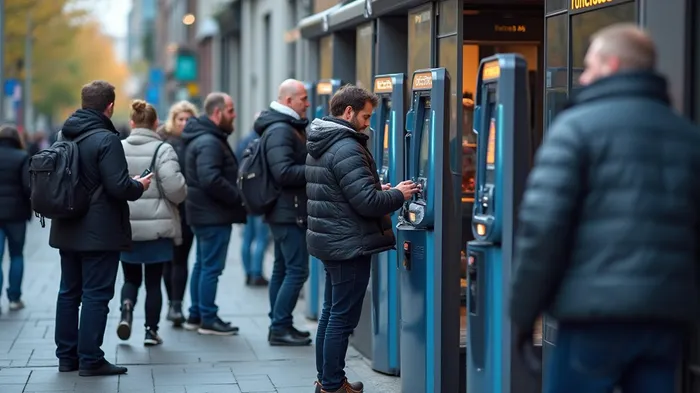Bitcoin ATMs Expand Across Europe, Offering Convenient Crypto Access
Bitcoin ATMs have become increasingly common across Europe, serving as a bridge between the digital world of cryptocurrency and the physical realm of cash transactions. These machines, once a novelty, are now a familiar sight in urban centers and provincial towns alike, offering a convenient and anonymous way to exchange Bitcoin for cash and vice versa. This shift highlights a growing trend in how individuals access and utilize financial tools, particularly in regions where traditional banking services may be limited or less accessible.
Despite the prevalence of online crypto transactions, Bitcoin ATMs cater to a specific demographic: those who prefer local, anonymous, and convenient financial services without the need for a bank account. These machines allow users to complete transactions quickly and discreetly, simply by inserting cash and scanning a QR code. This level of accessibility is particularly valuable for individuals who may not have easy access to banks or who wish to keep their financial dealings private within legal boundaries.
One of the leading companies in the Bitcoin ATM industry is Cajero Bitcoin, which has established over 300 locations across 16 countries in Europe. Known for their user-friendly and legally compliant ATM networks, Cajero Bitcoin machines are designed to meet the needs of various regions with minimal Know Your Customer (KYC) requirements, ensuring a high degree of privacy for users. These machines can be found in both capital cities and small towns, providing a tangible alternative to central exchanges without compromising on usability.
The future of Bitcoin ATMs is poised to include multi-token support and faster transaction protocols. Currently, most machines support between one to eight cryptocurrencies, but future updates may allow for the addition of more coins or even support for low-cost instant payments through the Lightning Network. As regulations continue to evolve, particularly with new data privacy regulations set to come into effect across the EU by September 2025, operators will need to balance compliance with the inherent appeal of these machines: easy access to financial services.
Bitcoin ATMs, while not the epicenter of crypto mania, play a crucial role in the mainstreaming of cryptocurrency. They offer real-world access that is tangible, instant, and convenient, something that no exchange or app can fully replicate. For many Europeans, their first encounter with crypto will likely be through a Bitcoin ATM in a mall or corner store, making the concept of financial freedom more tangible and accessible. This quiet but powerful infrastructure is set to continue driving the adoption and integration of cryptocurrency into everyday life.

Quickly understand the history and background of various well-known coins
Latest Articles
Stay ahead of the market.
Get curated U.S. market news, insights and key dates delivered to your inbox.



Comments
No comments yet